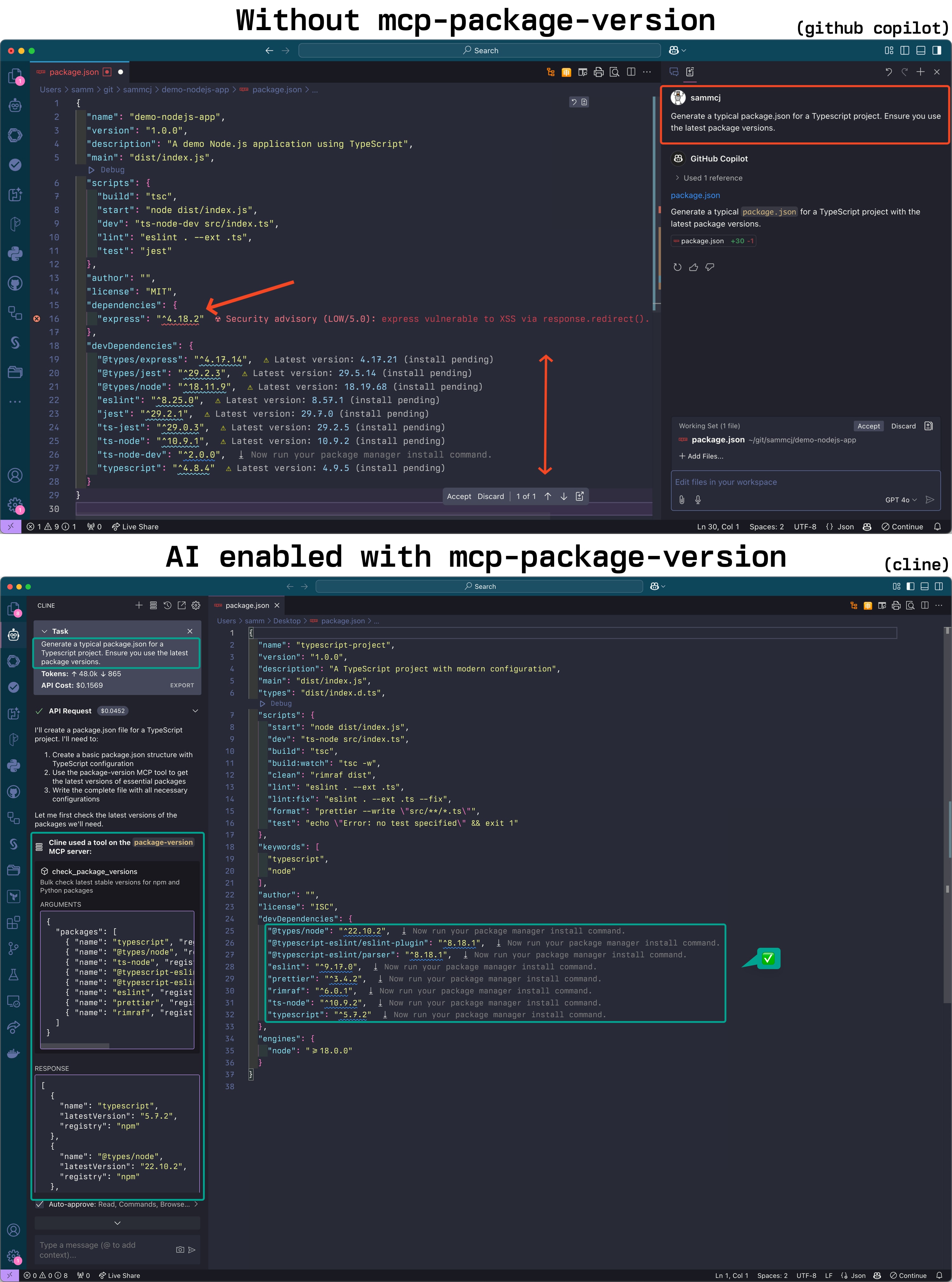Pacote Versão Servidor Mcp
Um servidor MCP que fornece LLMs com as versões mais recentes e estáveis de pacotes ao codificar.
Visão geral
O que é mcp-package-version?
O ### mcp-package-version é um repositório criado pelo usuário ### sammcj no GitHub. Este repositório foi projetado para gerenciar e rastrear as versões de pacotes dentro do ecossistema MCP (Multi-Channel Package). Ele serve como uma ferramenta vital para desenvolvedores que precisam manter o controle de versões e garantir compatibilidade entre diferentes versões de pacotes.
Recursos do mcp-package-version
- Controle de Versão: O repositório permite que os usuários gerenciem várias versões de pacotes, facilitando o retrocesso ou a atualização conforme necessário.
- Rastreamento de Compatibilidade: Ajuda a rastrear quais versões de pacotes são compatíveis entre si, reduzindo o risco de conflitos.
- Acesso Público: Sendo um repositório público, permite colaboração e contribuições de outros desenvolvedores, aprimorando a funcionalidade e a confiabilidade do processo de gerenciamento de pacotes.
- Documentação: Documentação abrangente é fornecida para ajudar os usuários a entender como usar efetivamente o repositório e seus recursos.
Como Usar o mcp-package-version
-
Clone o Repositório: Comece clonando o repositório para sua máquina local usando o comando:
git clone https://github.com/sammcj/mcp-package-version.git -
Instale Dependências: Navegue até o diretório clonado e instale quaisquer dependências necessárias conforme descrito na documentação.
-
Gerencie Versões: Use os comandos fornecidos para adicionar, atualizar ou remover versões de pacotes. Certifique-se de seguir as diretrizes de versionamento para manter a compatibilidade.
-
Colabore: Se você deseja contribuir, faça um fork do repositório, faça suas alterações e envie um pull request para revisão.
-
Mantenha-se Atualizado: Verifique regularmente se há atualizações no repositório para garantir que você está usando os recursos e correções mais recentes.
Perguntas Frequentes
Q1: Qual é o propósito do repositório mcp-package-version?
A1: O repositório mcp-package-version foi projetado para ajudar os desenvolvedores a gerenciar e rastrear versões de pacotes dentro do ecossistema MCP, garantindo compatibilidade e facilidade de uso.
Q2: Como posso contribuir para o repositório mcp-package-version?
A2: Você pode contribuir fazendo um fork do repositório, fazendo suas alterações e enviando um pull request. Certifique-se de seguir as diretrizes de contribuição fornecidas na documentação.
Q3: O repositório mcp-package-version está aberto para uso público?
A3: Sim, o repositório é público, permitindo que qualquer pessoa acesse, use e contribua para ele.
Q4: Onde posso encontrar a documentação para mcp-package-version?
A4: A documentação está disponível dentro do próprio repositório, tipicamente em um arquivo README.md ou em um diretório dedicado docs.
Q5: Como faço para relatar problemas ou bugs no repositório mcp-package-version?
A5: Você pode relatar problemas navegando até a aba "Issues" no repositório e enviando um novo problema com informações detalhadas sobre o problema.
Detalhe
Configuração do Servidor
{
"mcpServers": {
"mcp-package-version": {
"command": "docker",
"args": [
"run",
"-i",
"--rm",
"ghcr.io/metorial/mcp-container--sammcj--mcp-package-version--mcp-package-version",
"./out --transport transport --base-url base-url"
],
"env": {}
}
}
}